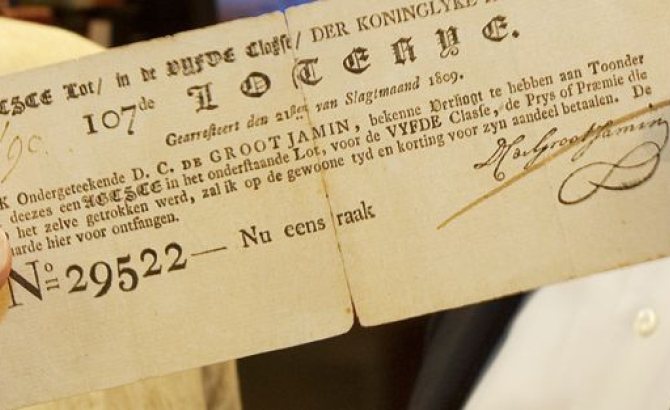
Public benefit before profit: Safeguarding the European Lottery model
The European lottery model is much more than a game of chance – it’s a shared societal value worth preserving.

Lotteries are not just games of chance; they are integral to the social fabric of Europe. Operating for the public benefit since 1441, when in Bruges (Belgium) the first model was conceived, today’s lottery games are still widespread in all EU Member States. Most importantly, they continue to generate funds for the public benefit.
EL stands for the sound and sustainable lottery model for the benefit of society, based on the values of forward-thinking, responsibility and integrity. EL and its Members are committed to actively preventing harm to consumers and implementing the highest standards of responsible gaming. By doing so, EL members aim to create the highest positive social impact for society.
To shape a secure and thriving future for the lottery sector in the EU and in light of the EU Term (2024-2029), EL has identified eight focus points in its manifesto to actively contribute to all relevant debates at EU level.
EL Manifesto 2024
1. Safeguard National Lotteries Unique Role for Society
In 2010, the EU Council recognised the positive impact lotteries make for society. EL calls on the EU institutions to reaffirm and protect the unique role national lotteries play for society in all EU Member States, the cultural heritage enshrined in their historical traditions and their principles.
2. Fight Illegal Operators and Their Online Content
Any operator offering gambling services to consumers in an EU Member State where it does not hold a national license, is de facto an illegal operator. EU policymakers should clearly distinguish legal from illegal operators. EL welcomes the concept of trusted flaggers introduced by the Digital Services Act, as a powerful tool in the fight against illegal content online in the lottery and wider gambling sector. What is illegal offline, should also be illegal online.
3. Tax Operators in the Consumers' Country
Illegal operators avoid paying taxes in the countries where they operate. By doing so, they can offer more appealing pay-out rates, creating an unfair competition to the EL members. EL urges EU institutions and EU Member States to ensure that all gambling operators pay taxes in the country of the consumer. However, operators do not become legal solely by paying taxes.
4. Strengthen Consumer Protection by Leveraging National Expertise
Because of its peculiar nature, the sector is exempt from specific EU legislations, with the European Commission rather opting for non-legislative initiatives on this matter. EL calls on the EU institutions to maintain such approach, recognising that EU Member States are best placed to address local needs and achieve the highest level of consumer protection in the gambling sector.
5. Take a Risk Based Approach to Advertising
Advertising plays a crucial role in channelling consumers towards the legal and safer offerings. It should be handled responsibly at national level in strict observance with the risk based approach. High-risk games should be subject to more rigorous rules than the low-risk ones (lottery games).
6. AI in Digital Gambling: Explore Opportunities, Prevent Misuse
While AI can play an important role in consumer protection and responsible gaming, it also poses risks when misused. To ensure integrity, AI implementations in the lottery sector must be carefully assessed and ethically deployed, in line with EU and national applicable legislation.
7. Sport Integrity: Urge the Ratification of the Macolin Convention
EL supports the Council of Europe’s Convention on the Manipulation of Sports Competitions and its key definition of “illegal sports betting” : “any sports betting activity whose type or operator is not allowed under the applicable law of the jurisdiction where the consumer is located”. EL invites EU institutions and all EU Member States that have not done so, to ratify the Convention.
8. Include Lotteries into Environmental and Future Social Taxonomy.
In any future discussions on the review of the environmental taxonomy or the future social taxonomy, EU policy-makers should take into account the unique characteristics of lotteries. A broad sectoral exclusion would harm EL members by hindering their collaboration with investors and insurers.
EL Position Papers
These position papers are associated to the eight focus points as outlined above and in the EL Manifesto.
Further resources
-
EL Manifesto (for non EU Members)
PDF 75.89 KB

